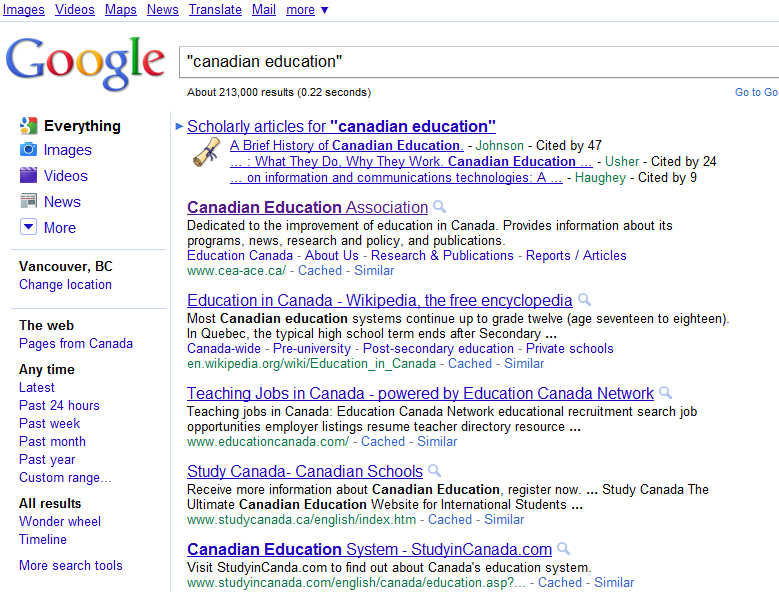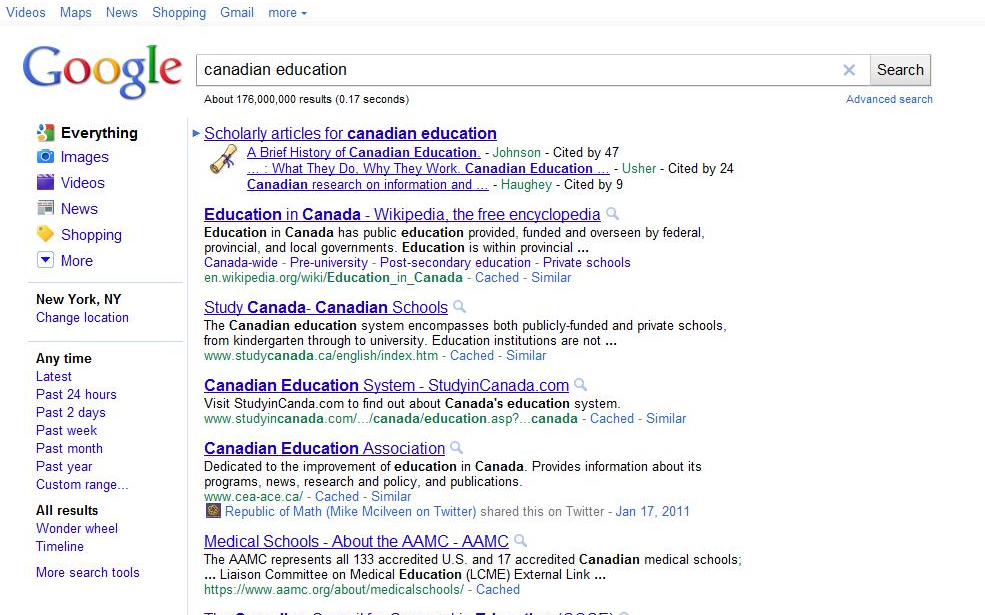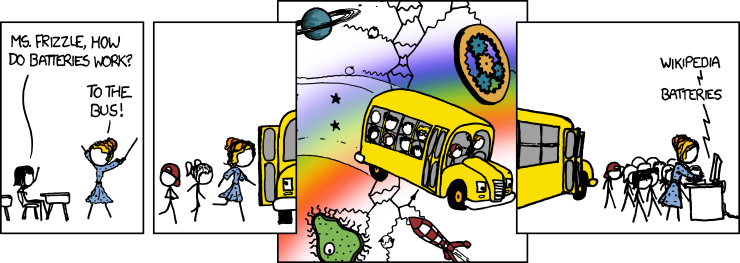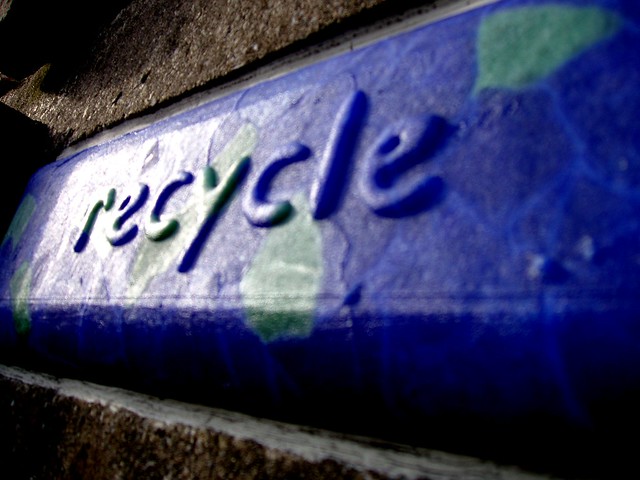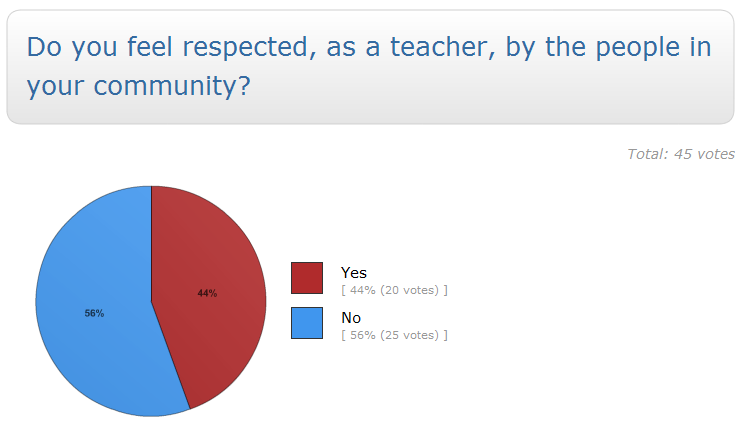When I started working at my current school, I realized that they do something in assessment which is very rare. Our school separates the behaviours and all of the types of things which are part of the process of work from the summative grades which come from the assessments which are the product of work. We end up with an "Approaches to Learning" rubric, which we use to provide feedback to students about the learning habits they’ve developed. Our current rubric has a quality of work column which I think we are planning on deleting for next year, so here is the rubric we will (hopefully) use.
| Quality of effort | Reflection | Remediation | Application to next situation | |
| 7 | An appropriate level of effort was evident throughout the term. Assignments were done on time. Student is an example to the rest of the class. | Student thinks about the tasks and the results. Accepts responsibility for learning, and looks for ways to improve. Always makes corrections. | Student clarified expectations and did follow-up with teacher when needed. If needed, appropriate steps were taken to fix any difficulties. | Is successful in making changes to approaches to learning to ensure ongoing success. Develops a variety of strategies. Seeks to improve and is successful. |
| 6 | An appropriate level of effort was evident, although there was an occasional letup. | Student often reflects on work and quality, and takes responsibility for learning. Usually makes corrections. | Student clarified expectations and did follow-up with teacher when needed. | Makes good effort in improving approaches to learning. |
| 5 | Effort was evident, but not always at the level it needed to be at. Occasionally (but rarely), deadlines were missed. | Student is developing a sense of understanding of the ways he or she learns best, and is making effort to improve learning. | Student readily asks for assistance, in class, but does not make much out of class effort to seek help. | Cares about performance and makes effort, sometimes unsuccessful, to improve work. |
| 4 | Effort level is inconsistent. Student sometimes misses deadlines, but always gets work in eventually. | Student reflection is only evident when teacher prods. When that occurs, student demonstrates awareness of learning issues. Makes corrections only when required. | Student only seeks help when teacher requires it. However, student takes a positive approach. | Occasionally, student makes purposeful changes in approaches to learning. |
| 3 | Student needs constant prodding to get work in, often after the deadline. Most work is handed in. | Student is able, but often unwilling, to be reflective about work. Seldom takes pride in corrections. | Student only seeks help when the teacher requires it, and is not positive about the experience. | Makes limited adjustments to learning, even when faced with poor initial work. |
| 2 | Work is seldom handed in, even after much prodding by teacher. | Student does not seem to be able to reflect on learning. Corrections seldom done, and only when pushed by teacher. | Student resists invitations for extra help. | There is limited attempt to make any adjustments, even when initial work is poorly done. |
| 1 | Work is not handed in. | Student does not seem to be able to reflect on learning. Corrections never done. | Student never seeks extra help, especially when needed. | Student does not learn from mistakes. |
There are some things I like less about this rubric. For example, while I think giving students feedback on their learning habits is useful, I don’t like the number associated with it. The 1 to 7 scale comes from the International Baccalaureate program, and is a mapping from descriptors like "very poor" and "good" to a number system. The temptation to find the average of the numbers from each column in the rubric above is too great, and the result of the average is a too brief summary of the learning habits of students. They often need the whole picture, not the summary.
Somethings I do like about this system a lot is that we often have students self-assess themselves on this rubric, and then we have a conversation about their self-assessment. I also really like that it means that all of those types of assignments which in the past I would have carefully graded and included as part of an average mark for students are now more formative tools. I don’t need to include a student’s marks on quizzes, homework, or small projects in their final grade. I can give them feedback on the assignment, and then keep track of their general learning habits using this rubric. The final summative grade reflects the rigorous assessments of learning I’ve given the students.
In the act of separating the learning habits from the summative grades, we learn a lot about students as well. A student who has strong work habits, but struggles to demonstrate mastery of material is now more obvious, and can receive the support they need. A student who has weak work habits, but is able to produce excellent summative work now gets feedback about their learning processes.
When I assessed students during my time in New York, at our school we were required to give students 20% of their grade for "work habits" (we weren’t allowed to call it participation), 20% for homework, and 60% for the assessments from class (included tests, quizzes, exit slips, whatever). The result was that students with "good" work habits were virtually certain to get a passing grade, even with horrible understanding of the material. The system was designed to pass students along to the next person, rather than verify that they understood what they were learning.
On the summative end of our assessment, for each course we have different criteria we assess. For example, math teacher assess using "Knowledge and Understanding", "Investigating Patterns", "Communication in Mathematics", and "Reflection in Mathematics." To be perfectly honest, it can get complicated for students to understand all of the assessment criteria, given that each is different for each course. In some respect this is similar to what happens when each teacher decides on how they want their work formated, and how it will be graded. However, the advantage of this system is that students get more feedback about what areas they need to improve, rather than just an overall grade. One aspect of this system I really like is that the final grade in each criterion is not an average of the marks the student has received, it is supposed to instead be a snapshot of what we think the kids are capable of doing on a good day, given their previous performance, and we discuss what we mean by snapshot so that there is some consistency across the school.
As much as is possible, I believe we should separate the learning habits students have from their performance on their summative assessments. Giving 0s for missed work, late penalties, etc… all dilute the meaning of a grade so that it doesn’t reflect the learning the student has done. Given that we still work in a system which expects student and teacher accountability through grades, at the very least these grades should have some meaning. A performance grade diluted by aspects of student behaviour just leads to questions like, "What can I do better?" Either it hides poor performance but good work habits, or it hides poor work habits with students who are good at summatize assessments.

